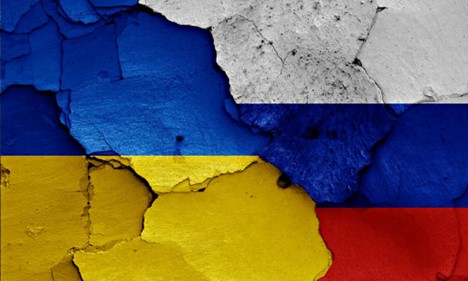The reactions of different jihadi groups and individuals to the Russian invasion of Ukraine have gradually surfaced, ranging from complete silence to support of jihad, since late February 2022. In our assessment, a prognosis of anti-Russia sentiment can be clearly detected. Interestingly, some of the reactions specifically referred to the Chechens, whose allegiance appears to be divided among both sides of the frontline.
Russia’s invasion of Ukraine on February 24, 2022, and the brutal fighting that followed has garnered much of the world’s attention, including, in part, many groups associated with jihadi Islamism. Below is an analysis of reactions and chatter in some of these groups regarding the mounting crisis in eastern Europe.
The Taliban
On February 25, 2022, the Afghan Taliban’s (formerly known as the Islamic Emirate of Afghanistan (IEA)) Ministry of Foreign Affairs released “a statement concerning the crisis in Ukraine.” Emphasising “a foreign policy of neutrality,” the IEA expressed its concern regarding the situation in Ukraine and called on the warring parties to use restraint and embrace dialogue.
The IEA highlighted its specific concern about Afghan citizens and students in Ukraine. In the statement’s conclusion, it addressed both Ukraine and Russia, asking them to “pay attention to safeguarding the lives of Afghan students and migrants.” The next day, the group released another, shorter statement, “expressing concern for the safety of Afghan citizens and students in Ukraine.”
Hay’at Tahrir al-Sham (HTS)
While our analysts were monitoring the dialogue on the war, we found some related matters moderated by religious scholars linked with HTS, one of the prominent rebel groups in Syria, which has united in Idlib Governorate in recent years.
An interesting piece of information was shared on February 27th, on the Telegram channel of Sheikh Yahya al-Farghali, also known as Abu al-Fath al-Farghali, a senior HTS cleric and jurist of Egyptian origin. It contained a Q&A part concerning prayer in support of Ukraine.
Another scholar who voiced his views on the situation in Ukraine more frequently is Sheikh Maysara bin Ali, better known as Abu Mariya al-Qahtani, a senior religious commander in HTS’ ranks, and a former commander in Jabhat al-Nusra. In various messages on his Telegram channel, he too remarked on the issue of supporting either of the warring parties.
Islamic State
At the time of writing, it seems the official line followed by The Islamic state has followed the known rejectionist line against the two warring parties, which appears frequently in the group’s propagandist materials. For example, editorials and materials showing leaders such as Biden, Putin, etc. with quotes about the war. In addition to criticising the warring parties, IS drew a contrast between Ukraine and the Fertile Crescent.
Reactions from Central Asia and the Caucasus linked factions
Several military or paramilitary factions within the Islamist world, whose members are mainly from countries in the Caucasus and former Soviet Central Asian countries, also contributed to the dialogue about this situation in Ukraine.
The Chechen ethnic minority, for example, has become part of this chatter, whether stated by others, or because of their existence both as a diaspora in Ukraine and as an integral state of the Russian Federation, which ripped the general fabric of Chechens as a regional community.
Analysis and implications
The responses analysed above are illustrative of the wide arc of responses to the initial stages of the developing war in Ukraine. On the face of it, the range seems varied – from al-Qaeda’s reverberating silence, Taliban’s official and apparently impartial statements stemming from its assumption of power last summer, to insult, ridicule, and aggressive stances by IS, HTS, and other groups and individuals supposedly concerned about the war.
That said, the commonality of all the responses is a certain degree of caution while carefully observing how the current crisis will affect the future. Presently, it seems that despite “equal” feelings of anger and abhorrence towards Ukraine, the jihadi groups are proposing more anti-Russian thoughts in their statements, which, plausibly, stems from the latter’s growing involvement and influence, whether in the Middle East, as relates to IS and HTS, or on the Caucasus and Central Asia, as far as the native ethnic Muslim minorities in the former Soviet countries are concerned.
To conclude, it is thought-provoking to see how the various responses expose different positions toward the Chechens, whose veracity as an ethnic community has come under threat as the invasion of Ukraine by Russia continues at the time of writing.




